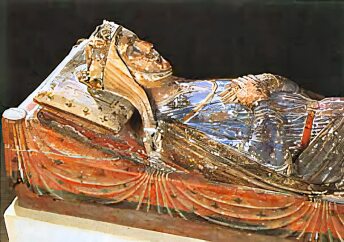I'm a bit sad today. Not seriously so, you understand; it's mostly loneliness. I've taken a gap year, and all my friends have now jetted off to exotic locals Coventry, Wales, Manchester and the like to study new and exciting subjects Chaucer and Mathematics. Still, whatever floats their boats, eh? I, of course, don't begrudge them their time or happiness at their various universities - indeed, I am glad they all seem to be enjoying it so much. But sometimes, when I'm stuck in a tiny village with nothing going on in the arse end of nowhere, things do get a bit lonely.
And yet! It does not necessarily have to be so. I haven't really felt lonely all day - it's only now, when they're all out at the pub or various clubs, having lots of fun that I really miss them, because they're not here to talk to me. Over the course of today, I have spoken to my friends in Wales, Manchester, Shropshire, Coventry and Birmingham via a combination of email, instant message, text message, Skype, Facebook and Twitter (because I am cutting edge a poncy middle class child). If I wasn't so socially retarded, I could even phone them and see how their days had been. In a few weeks, I shall hop on a train and even visit a few of them.
So actually, I'm very lucky. A lot of people, even in this day and age, do not have the option to do any of this. Further back in time, very few people did. Carrier pigeons, whilst generally reliable, aren't always the speediest forms of communication, though they did have the advantage of being less likely to betray you or be intercepted than a rider on horseback was. If you wanted to stay in touch with someone in the thirteenth century, your options were pretty limited.
This brings me to Isabella of Angoulême. Clearly... On this day, in 1200, she was crowned Queen Consort of England, a few months after her marriage to King John I. This is Isabella (obviously quite a few years after her marriage...):
I'm not sure if you can tell from her tomb, but when she married John, on August 24th of the same year, she was heralded as a great beauty - medieval Historians sometimes call her the Helen of the Middle Ages. This was a double edged sword for her - the British people were, apparently, pleased to have such a beautiful wife for their King (and there was me thinking the excessive photoshopping of women in magazines and the like to "bring them up" to the required "standard" was a modern thing...), but she turned said King into a lazy scoundrel. Kings were expected to get up at five o'clock in the morning (effing hell) whereas John used to like to stay in bed with her until nearly midday. This was terribly shocking to medieval sensibilities, and didn't exactly do much for John's reputation as a good-for-nothing waster. The common people of England deemed her a siren, and she was well known for being vain.
Isabella was also French, as you may have guessed. Again this was a double edged sword, as whilst the French had made up the ruling elite ever since the Norman Conquest of 1066, there were still some displaced English nobles who considered themselves - or, to be more precise, their daughters - more worthy of the throne. But she did manage to provide the country with five healthy children, including the future King Henry II, so she was forgiven most things.
Despite the fact that she was so vain, well known for having a terrible temper to match her husband's, a clear royalist and a snob, who detested her lower ranking once her husband had died, which left her merely Countess of Angoulême, I feel rather sorry for Isabella. She was born in 1188, and those who are good with numbers will have spotted that this made her a mere 12 years old when she married John (who was 32 at the time). She would have been relatively alone (I say relatively - clearly she had numerous servants with her, but none of the family and friends she had grown up with) in a foreign country, where most people treated her with suspicion, and, in the case of most men, gruesome lust.
If I can be lonely, a mere two hour drive from most of my friends - nearer in some cases - with instant virtual access to them if I require - I cannot begin to imagine what life must have been like for Isabella, a little French girl, a pawn in some diplomatic marriage or another, traded off in exchange for money, or land, or both, suddenly thrust into the middle of English court life. I apologize if this has come across as very 'poor little rich girl'; that was not my intention. I merely wanted to raise the issue once again that things are never as straightforward as they first appear, particularly when it comes to History.
I really wish I didn't write so clinically, that my style was more prosaic. I'm not even sure I explained that clearly. If I could explain it any better, I'm sure I would...
